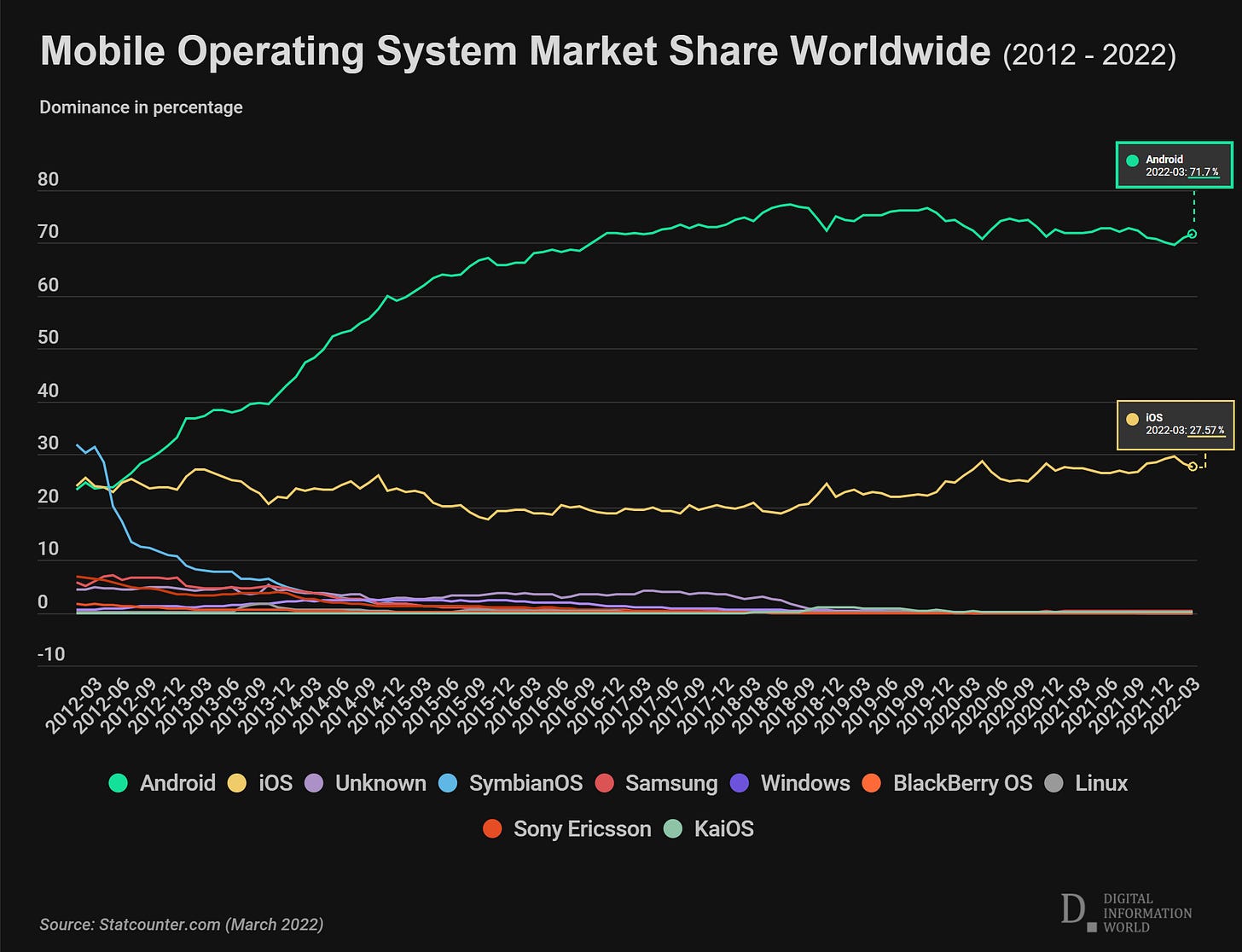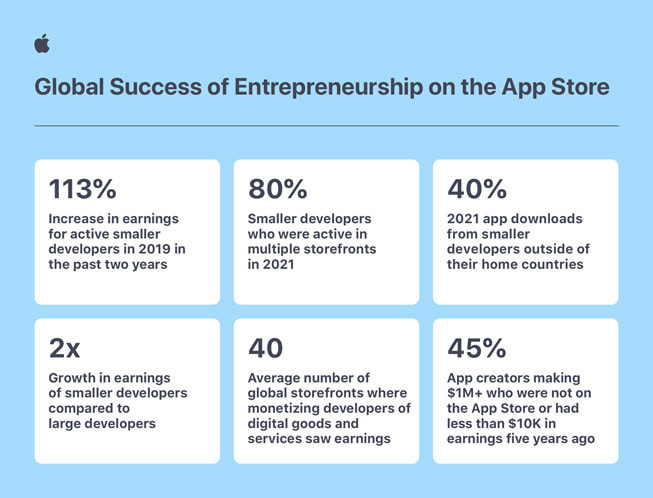🙇♂️Digital Serf: Is Apple's 30% Tax Monopolistic?
Apple recently announced that all digital goods purchased within apps on iOS will now attract a 30% fee, potentially wrecking business models of multiple industries
We write a weekly newsletter on all things Music, and the Business and Tech behind it. If you’d like to get it directly in your inbox, subscribe now!
Happy Monday everyone!
Or rather, Happy Halloween 🎃
Regardless of whether your culture appreciates the history of Celtic people wearing costumes and lighting bonfires to ward off ghosts in the medieval times (believe it or not, that’s how the tradition started), Halloween has pretty much become a global celebration now.
However, for pretty much the entire Tech industry, Halloween came a week early, as Apple updated its App Store policy, in a move that can potentially have rippling effects on the business models of multiple industries.

What is it exactly?
As per a change in their App Store Review Guidelines, developers including any kind of purchase of digital goods/subscriptions within their apps on the iPhone, will have to shell out a flat 30% fee to Apple.
Popularly known as ‘IAP’ or ‘In-App-Purchases’- this 30% cut straight out of the app developers pockets has historically been a controversial topic, with the infamous lawsuit between Apple & Epic Games- the $32 Billion video game company- popular for being makers of ‘Fortnite’
While that lawsuit was ruled in the favour of Apple, & denied Epic’s claim of it being a Monopoly, it still ensured that Apple allowed developers to inform users that there were alternate ways to make payments for in-app purchases/subscriptions.

The standard practice adopted by app developers, involves re-directing users to their main website & enabling them to complete the purchase from the web, which obviously avoids the entire 30% tax.
While that is how most developers are now charging users, Apple is making sure it makes life hell for those trying to by-pass Apple’s digital toll-booth.
How exactly?
As per Apple’s new guidelines, the definition of ‘IAP’ has been extended to ANY kind of purchase of digital goods made within the app.
That includes stuff such as:
💸 Paying money to boost an Instagram Post
🖼 Buying an NFT on an iOS App
📲 Purchasing an Audiobook on Spotify.
While this predatory tactic of Apple has been acknowledged by developers as a pain-point in the past, last week’s changes have seen everyone from Spotify CEO Daniel Ek, the entire Crypto community, Meta & even Elon Musk chiming in to call out Apple on its monopolistic practices.


My favourite take was from the Crypto podcast ‘Bankless’, which particularly highlighted how even NFT’s within apps on iOS will now attract the 30% tax, comparing developers building within the iOS framework as a ‘Digital Serfs’ working for the feudal landlord that is Apple.


Keeping the obvious click-bait euphemism aside, I think what they’re trying to say makes a lot of sense.
The entire Crypto/Web3 movement has been based on the principles of decentralisation, & NFT’s particularly were a way for creators to avoid paying exorbitant fees to middlemen such as Big Tech platforms, & directly monetise from fans.
While creators of NFT’s can still obviously let users buy them on web and not pay the 30% fee to Apple, for these tokens to achieve mainstream adoption, it is inevitable to launch a compelling user-experience for the mobile.
And Google which owns Android & Apple’s iOS, power & control pretty much the entire smartphone industry.
Made it this far? If you’re digging this content, please share this with someone & help support us!
In fact, even Google was recently fined more than $100 Million by CCI (Competition Commission of India) for their unfair practices around not letting developers use external billing/payment services for in-app purchases.
So while Instagram has built a multi-billion dollar Ad business, Spotify has disrupted the music streaming industry & NFT’s have democratised ownership of art (or has it?), end of the day- they’re nothing but digital serfs to the feudal landlord that is Apple.
In fact, at the height of the Epic Games vs Apple lawsuit, the makers of Fortnite released a parody video of Apple’s original 1984 Advert, highlighting how it had turned into a monopoly it fought against back in the 80s 👇🏻
While Apple made this Super Bowl Ad targeted towards IBM being the ‘Big Brother’ monopoly in Personal Computers back then, life came a full circle for them.
Just like any other monopoly throughout the history of corporations, app developers must pay their pound of flesh in order to reap the benefits of having their products being accessible to billions of users around the world via iOS & Android.
Our Take On This?
It is foolish to turn a blind eye towards the amount of value creation Apple has done for humanity, with over a billion iPhones worldwide fundamentally changing how people around the world live their lives.
With over 2 million Apps, iOS has become a mini-economy in its own, with Apple claiming that it helped create 2 million jobs in the US, & helped small businesses/entrepreneurs extend their products to millions of users around the world.
However, charging 30% for every in-app purchase is A LOT.
It is one thing for Apple to go after Meta’s Ad Business specifically, for nascent industries such as Web3, it will simply make it unsustainable for developers to experiment with NFT’s or any other such digital goods.
Does Apple really care? Probably not.
They might claim to do so, but it’s super interesting to see how the entire narrative around Apple has changed, from the company that fought against the ‘Establishment’ to becoming the biggest of them all.
As they say:
“You either die a hero, or live long enough to see yourself become a $2 Trillion monopoly”
Have a good week everyone!
If you liked this newsletter from Incentify, why not share it with someone you like?
P.S- Follow us on Instagram and Twitter for more such content on all things Music and Culture, now!







